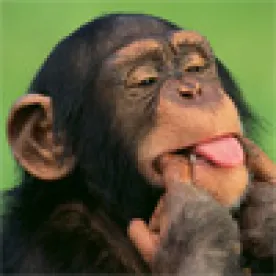On April 13, 2018, the Ninth Circuit Court of Appeals affirmed the dismissal of a copyright infringement lawsuit brought on behalf of a very dexterous monkey, Naruto, that managed to take selfies with an unattended camera belonging to wildlife photographer David Slater. Mr. Slater published the monkey selfies in his book, identifying himself as the copyright owner while admitting that Naruto took the photographs. People for the Ethical Treatment of Animals (PETA) sued Mr. Slater for copyright infringement on behalf of Naruto as its “next friend.” Naruto v. Slater, No. 16-15469, D.C. No. 3:15-cv-04324-WHO.
In affirming the dismissal of the lawsuit, the Ninth Circuit made several rulings of interest:
-
PETA did not have standing to sue as Naruto’s “next friend” because they did not claim to have a relationship with Naruto that was “any more significant than its relationship with any other animal” and because the court declined to recognize the right of next friends to bring suits on behalf of animals.
-
The Ninth Circuit, in its discretion, chose to proceed with the appeal after PETA advised the court that the case “settled” – although Naruto was not part of the settlement – when Mr. Slater agreed to pay a quarter of his earnings from the monkey selfie book to charities that protect the habitat of crested macaques in Indonesia.
-
The court proceeded to the merits after finding that the monkey did have standing to sue under the “case or controversy” clause of Article III of the U.S. Constitution, citing Cetacean Cmty. v. Bush, 386 F.3d 1169 (9th Cir. 2004), which held that the world’s whales, dolphins and porpoises, through their self-appointed lawyer, had standing under Article III. The Ninth Circuit opined that Cetacean was decided wrongly, but it is binding precedent nonetheless.
-
Finally, the court held that the Copyright Act does not contemplate statutory standing for animals. PETA argued that corporations are nonhuman and are allowed standing. The court countered that the Supreme Court specifically held that corporations are “persons” for standing purposes; and in any event they are formed and run by humans, and not animals.
The outcome of the “Monkey Selfie” lawsuit is not surprising. In fact, since this lawsuit began, the U.S. Copyright Office has included “a photograph taken by a monkey” as an example of a non-copyrightable item. This case does cast light, however, on some unexpected precedent that may, in another matter, affect the result. The case also serves as a reminder to litigants that a federal appellate court may choose to rule on matters it considers significant, despite a settlement that was reached possibly to avoid creating unfavorable precedent.


 />i
/>i
